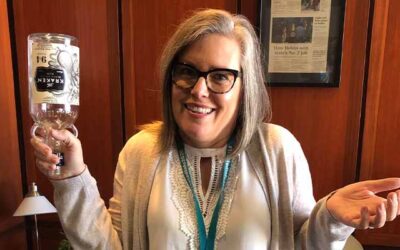By Corinne Murdock |
Earlier this month, the Arizona Board of Psychologist Examiners failed in their attempt to punish a psychologist seeking her license under the universal licensing law.
Dr. Carol Gandolfo applied to practice after the landmark legislation passed in April 2019. The board denied Gandolfo’s application, as well as four others. They claimed that Gandolfo didn’t qualify under the law because she’d moved to Arizona before the law was enacted. Since she didn’t qualify for the protections of the universal licensing law, the board used old licensing standards to claim that her degree was insufficient because it wasn’t from a regionally-accredited school.
The Goldwater Institute stepped in on Gandolfo’s behalf to fight the board. This caused the board to reverse its decision on how they’d interpreted the law in her case and the four others. However, the board decided it wasn’t done with Gandolfo.
The board opened up an investigation in a furthered attempt to deny her a license. They characterized Gandolfo’s volunteer activities with groups like law enforcement and first responders as unlawful. In doing so, they accused her of practicing without a license.
However, those accusations didn’t stick. After some months of investigating into Gandolfo, the board submitted a nonpunitive letter acknowledging that Gandolfo didn’t engage in any wrongdoing.
Now, nearly two years after initial passage of the law, Gandolfo has been cleared to receive her license to practice.
The Goldwater Institute issued a statement on the board’s decision to close their complaint.
“At a time when more Arizonans are in need of mental health services, the Board should focus on allowing respected professionals to provide those services,” stated the Institute. “The Board’s decision today allows Dr. Gandolfo to get back to providing the care she is trained and experienced to provide, and it assures other Arizonans that they can practice their professions free from arbitrary restraints of occupational licensing boards.”
Licensing boards have proved to be a double-edged sword for businesses. Proponents for expanded boards focus on the potential protections it can offer the consumer by preventing inadequate, harmful, improper, or dangerous practices, they argue.
Proponents for limited boards – or, no boards at all in some cases – argue that they stymie healthy competition, which also impacts the cost to both consumers and businesses. They also argue that they establish barriers between an individual and their profession.
Just before the onset of the COVID-19 nationwide health emergency last February, the Goldwater Institute noted that over 750 businesses benefited from the new universal licensing law. In June – several months into the pandemic – nearly 1,200 individuals gained their Arizona license under the law.
At the time of that report, several hundred other individuals had filed their applications. Only 16 were rejected out of all those who filed. 12 of those rejected applications had nothing to do with credentials, however. The individuals merely failed on the technicalities of residency requirements. A board official clarified that those applicants weren’t ultimately considered rejections because they reapplied for a standard license.
Corinne Murdock is a contributing reporter for AZ Free News. In her free time, she works on her books and podcasts. Follow her on Twitter, @CorinneMurdock or email tips to corinnejournalist@gmail.com.








